24 Oct 2019 - {{hitsCtrl.values.hits}}
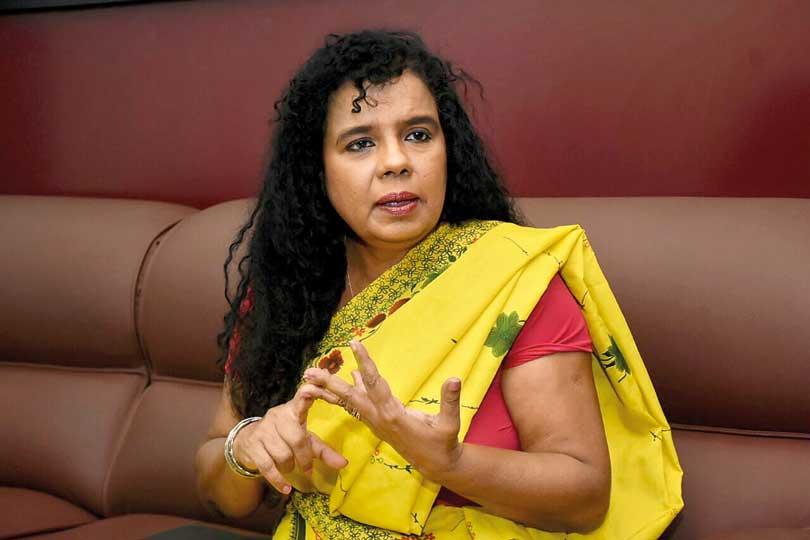
Dr. Ajantha Perera, the only female candidate to contest in the upcoming Presidential Polls is determined to bring about a total transformation in the existing political culture. Contesting from the Socialist Party of Sri Lanka, Dr. Perera is a recognised environmental scientist in Sri Lanka and many other parts of the world. 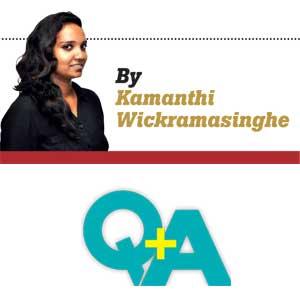
In a candid interview with the Daily Mirror she explained her vision for the country and why it’s time to bring about a change in the routine political structure in the country.
Excerpts :
Q: There are 35 candidates this time. How are you different from the rest?
I’m a woman, I’m educated and I have a vision for the country. I have a lot of international connections and I have experience working at the Consumer Affairs Authority, Ministry of Health’s food advisory committee and I even have my own programmes on recycling solid waste. I think I’m an all-rounder. I also think that I have a wealth of knowledge to be the President. Every President in this country has had advisers. The first thing they do is appoint advisers and then they are paid a lot of money. Sometimes you may be using the wrong people. I don’t think I would need that many advisers because I have studied all subject areas including economics, health, women’s and children’s rights etc.
Q: For the past many years it has been a Blue or Green party candidate that has taken the hot seat. Do you think you can change this routine?
I want to. Not because I don’t like blue or green, but because of the fact that you need to have a vision and they have been in power. They have been in Parliament and have had ample opportunities to change systems and utilise their budgets well so the people could benefit from them. How can they now say that they would do it differently? It’s the same person who is talking. It’s the same brain and it doesn’t grow anymore during this period. Therefore I’m thinking about a drastic change for the benefit of the people. Our policies are made by people who got together haphazardly after the election and then they put forward some policies. Policies should be generated from grass-root level and they should have the voices of the people. It shouldn’t be top down. What has been happening is that they have been bringing down foreigners to draft policies. I have nothing against foreigners but they have no clues about our industries. Policies haven’t been developed from people and I think it’s wrong. We have robbed the people of their rights. So we need to work with people, boost them up and get them involved in the development process. They have been hurt for too long. 
Q: Could you tell us about your plan to restore the economy and the prevailing debt crisis?
My principal aim is to rejuvenate local industries. The Board of Investments (BOI) is catering to foreign investments and we can’t even enter into their premises. I believe that the BOI’s policies need to change and environmental authorities need to be given the authority to inspect the place. I want to take local industries into industrial estates and establish them because eventually the benefit of the industries should come to Sri Lanka. There are many youth who don’t have jobs and they go abroad to find jobs. That flow has to stop. We also need to look into the occupational health aspect. These people have done everything in the reverse and it will take time for us to give power to the hands of the people. I’m also hoping to declare Vavuniya as a capital city. That has been my dream since 1997. I’m going to take government structures to Vavuniya and develop industrial zones. Vavuniya will become one of the beautiful green cities and this will push development to Jaffna. On the other hand I want to declare Puttalam as a capital city and therefore people in the South will not feel superior to those in the North. Otherwise people will feel discriminated.
Q: We also have an ailing health sector and a failed education system. Do you plan to bring about reforms in these sectors?
Today education is restricted to buildings. If they give a building to a school their child’s education is secured. I have always learned about education even before getting my PhD. Right now, the most important thing for a school is the quality of education. Children need to become adults and if they want to contribute to development they need to learn from kindergarten itself. Since I studied in England, Germany and USA and have also worked in Fiji, I have developed a system where I’m connected with all these people. I want to provide an opportunity for these children because they need to get exposure from time to time. They need to know that there’s another world out there. This way our youth will gain confidence and when they know that the education system is looking after them, they don’t have to go on strike, be on the streets etc. Then university lecturers will also be part of the development process. On the other hand I have done a lot of work with hospitals on their waste management aspect and I have been asking them to grow more trees for the benefit of their mental health. We also have to monitor the quality of food and make sure that the foods people receive are of good quality. Usage of pesticides needs to be addressed because they have an impact on our DNA and genes. If a pregnant mother consumes fruits and vegetables sprayed with pesticides, the baby that is born will be susceptible to diseases. Today we find a lot of children that are born who fall sick very easily. The transport sector is utterly bad and we have a lot of vehicles running with black fumes. At the end of the day we need to make sure that children’s health is well looked after because they are the future of the country.
Q: Defence and security have become much talked about issues in present election campaigns. Justice wasn’t served for the victims of the Easter Sunday attacks. Until it happened the authorities didn’t take security seriously. What are your plans to strengthen national security?
National security is important, but I believe in national harmony. That is my priority. I’m not for taking up arms against our own people. This is why we will run under the same flag of Sri Lanka. National security is for anything that can come from outside. Anybody who attempts to attack Sri Lanka will be harshly dealt with. I’ll also make sure that the youth are happy because most of these things begin with the youth when they feel that they are not part of the system. This is why I’m putting a lot of emphasis on the North and East. I’m also going to take out ethnicity and religion sections in all application forms. No one has a right to ask about ethnicity or religion. Therefore our appointments will be based on qualifications and not on ethnicity or religion. This way we will be able to call ourselves Sri Lankan. Once we have peace in the country, economic development will happen very fast because people will develop. 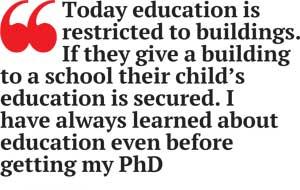
Q: Some issues like garbage, polythene, plastic look like some of your pet areas. But our general voters don’t see them as important issues. What is your view?
One of the things I will definitely do is stop the usage of single-use polythene bags. We have a huge garbage issue in the country right now because of that. But I will not shut down industries. There’ll be a dialogue with the people to make sure that nobody loses their jobs. For me industrialists are very important people. Thereafter the enforcement of usage of environmentally friendly bags will be promoted because we have a lot of natural resources in Sri Lanka which we don’t want to destroy. We still have a beautiful country where tourism is one of our key industries. If tourism is to be boosted we need to ensure that natural resources are kept well. Tourism is something that I will definitely improve because we have herbal treatment centres. Sri Lanka will have that green-aspect and people will visit Sri Lanka for its greenery and beauty. In order to do that conducting Environmental Impact Assessments will be the methodology and that will be enhanced. These will become mandatory. Another drastic change I will make is that I will not have an environmental ministry. But I will give power to the Central Environmental Authority and restructure it. On the other hand, I’m going to give a lot of power to non-governmental organisations and grass-root level organisations who will be my monitoring bodies. They will come to the environmental authorities with people’s power. But in all these I will be a monitoring body. 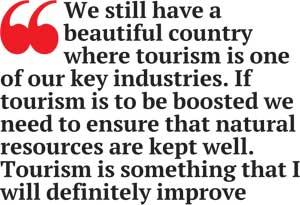
Q: You have experience working in the West. Do you think you could apply those theories and experience to the Asian context?
Yes. One of the things about the West is that they have set their lives in order. They believe in rights and wrongs. They have leaders who are simple and governance is quite transparent. We need to apply those practices here. All our assets need to be declared before we sign for elections and there are many people who haven’t done that in Parliament. It’s quite easy to tell people what you have and saying this is how you live. Transparency is a good quality. In the West, one of the things that would happen is that if they get a budget, they would exactly know how to spend it, what is remaining etc. But in Sri Lanka you will never see these. I lived 22 years in the West and it will not be a difficult thing now.
Q: Sri Lanka needs to strengthen diplomatic ties and we are slowly being dominated by China. How do you intend to broaden and strengthen the foreign policy?
The first thing is to put the right people in the foreign embassies, not my relatives. They should be people who are integrative and those with a vision for the country and those who will respect another country. This way they will build a good relationship. This relationship can be social and economic as well. Whatever comes from outside should be linked to the country. I firmly believe that I could get rid of 60% of debt just by dialogue. If we can economically lift our country and strengthen our country because of our ethnic harmony, we will become a strong nation that can face outside forces. We need to strengthen ourselves so that we will be able to compete with ourselves and the world. 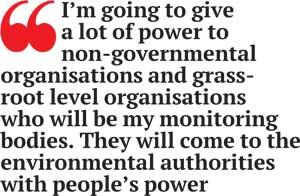
Q: Women groups have discussed and debated about increasing the women quota in Parliament. What are your plans to encourage women to take an active role in politics and other decision-making roles?
I’m happy that I’m the only woman in this competition. I’m the first Leftist woman to come forward after 22 years. With that I have a huge task ahead of me. We need to have more women coming forward. Even during canvassing I encourage women when I meet them but they are a little fearful because they feel they don’t have a background. What matters is your passion and what you do and it should be for the people. If you are a good mother you can be a good leader.
Q: In case if you are not elected what is your next plan? Would you remain in politics?
Until November 16 I am positive that I will be elected. If not, I will have to decide for myself. If I become the President I want other candidates to be around me. One thing I will definitely be doing is the monitoring aspect, making sure that the country is running in the right direction. This country needs to be guided. If it is taken in the wrong direction it will be difficult for us to take it back. Therefore I think this is a crucial Presidential Election and we need to ensure that we elect the right person.
Pics by Kushan Pathiraja
10 Jan 2025 1 hours ago
10 Jan 2025 2 hours ago
10 Jan 2025 2 hours ago
10 Jan 2025 3 hours ago
10 Jan 2025 3 hours ago